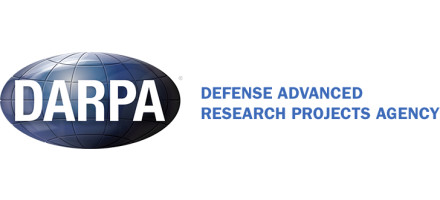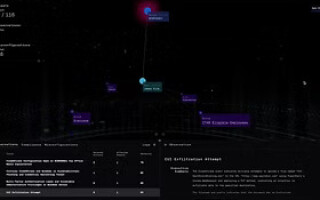Video games on the hunt to build a better virtual AI teammate
StorySeptember 08, 2020

Military teams operating in the battlespace against opponents under often-adverse conditions must act and react incredibly quickly, as adversaries become more adept and gather data on the fly. Artificial intelligence (AI) will become increasingly critical in helping commanders and team members with decision-making.
AI at this point, however, is more a limited tool than a teammate. AI as we currently know it is limited in its reasoning and integration with human teams, as it lacks an element called “theory of mind,” a kind of skill that enables humans to in a large part figure out the cognitive state of the people around them. So, just a modest goal: To instill social intelligence into a machine.
Toward this end, engineering firm Aptima (Woburn, Massachusetts) has announced a multiyear contract award from the Defense Advanced Research Projects Agency (DARPA) for ADAPT [Adaptive Distributed Allocation of Probabilistic Tasks]. ADAPT is an innovative program to develop a new generation of AI and software agents designed to work alongside, learn from, and interact with human teams.
Under ADAPT, Aptima and partner Arizona State University (ASU) will design, build, and validate collaborative and – hopefully – adaptive AI agents. These innovations will drive forward communications and cooperation between human and artificial agents; eventually they will also help real-world commanders process data streams, mount functional battle teams, and adapt action plans as missions change.
The research team will test its socially intelligent agents in a search-and-rescue scenario within the virtual world of the incredibly successful Minecraft video game (officially the best-selling video game in the world – ask any middle-schooler about it), in a testbed developed with ASU researchers. (Figure 1.)
In the first year of the ADAPT program, the team will work to train its software agent to infer the state of mind of an individual team member while playing the game. In subsequent project years, the agent will interact with multiple human players and attempt to understand what each of them is thinking, even as the virtual environment around them changes.
ADAPT’s agents and AI systems – inspired by certain qualities of human cognition, using a type of reasoning based on “active inference” – will enable computer-based agents to perceive, learn, and adapt based on their observations of the environment and their interactions with human team members.
ADAPT will also look at another critical drawback of current AI agents: A lack of two-way communication and reasoning input that is needed between team members for collaboration. The team will attempt to remedy this situation using a variety of advanced interfaces, visualizations, and models.
Adam Fouse, Ph.D., Director, Performance Augmentation Division and ADAPT Program Manager, says of the program: “ADAPT will take a significant step forward in human-AI collaboration so warfighters and intelligent technology can reason and work together to make better, faster decisions than either could do on their own.
“By learning from its human counterparts, and taking into account their goals, preferences, and constraints, these more informed agents can guide AI in forecasting, creating, and adapting action plans as missions evolve,” he adds.
One example Fouse gives: Urban search and rescue in which advanced AI agents would review millions of possible scenarios to help commanders deploy resources to the correct areas while minimizing risk to human or autonomous assets.
“Humans excel at learning from one another but can only process so much incoming information. AI on the other hand has incredible computational abilities but requires the ability to learn from and communicate with humans in order to be used effectively in dynamic team situations,” Fouse says. “These combined attributes will elevate a commander’s expertise and decision making in fast-changing, information-intensive environments so they can respond, and adapt quickly, while also considering future possibilities.”
The ADAPT project, according to Aptima officials, builds on previous work that the company has done with DARPA – dubbed ASIST, or Artificial Social Intelligence for Successful Teams – that aimed to engineer software to help DARPA create and assess socially competent AI.





